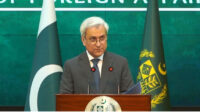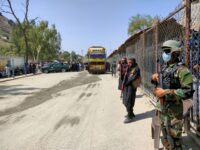Islamabad June 7, 2021: During the pandemic, which has posed challenges for large economies of the world, Pakistan has succeeded as regards with restoring its economy, which is expected to grow by almost 4% in FY2021, surpassing initial projections, Forbes Magazine reported.
“Even giants like the United States and India have experienced issues managing the Coronavirus pandemic. Donald Trump, Dwayne Johnson, and Ellen DeGeneres have all been touched by the virus. In the present circumstance, Pakistan has prevailed with regards to restoring its economy, which is relied upon to grow by nearly 4% in 2021, surpassing initial projections,” the magazine says.
It says that the services sector, which is estimated to grow by 4.43% in 2020-2021, is responsible for most of the development. This is remarkable for a nation like Pakistan which is gaining success in expanding the services area. The agricultural sector’s anticipated development is 2.77%, while that of the industrial sector is 3.57%, it adds.
The report cited Governor State Bank of Pakistan (SBP), Reza Baqir as having said the unforeseen development in GDP was because of aggressive monetary and fiscal policy
SBP immediately reduced its policy rate by 625 basis points to 7% and delivered a stimulus of up to 5% of GDP. Moreover, the governor said that the government had been able to control the Covid situation announcing 12 new cases for each million, contrasted with 62 new cases for every million around the world.
Pakistan reported highest trade volumes on the Pakistan Stock Exchange at 1.56 billion shares and 2.21 billion shares respectively on may 26 and may 27. Investors and Financial backers are optimistic on account of the populist budget proposal and improved growth forecasts.
As per the report, the IMF’s world economic outlook numbers Pakistan’s public debt to GDP remained largely unaltered in 2020 over the earlier year, as reported in Bloomberg. This measurement for most arising nations expanded by 10% during the Covid pandemic. Reza Baqir clarified that this was brought about by a “reasonable financial and aggressive monetary policy approach.”
Meanwhile the country’s recently reported CPI of 11%, up from 6% a couple of months prior. The nation anticipates that inflation should go somewhere in the range of 7% and 9%, with experts foreseeing that it will be nearer to the higher end. The recent high inflation was brought about by few items like energy and food. On account of supply-side components, Baqir portrayed these elements as “one-time,” yet authorities are set up to react rapidly to demand side pressures in the event that they emerge, the reports cites Raza Baqir.
Baqir further stated that the government was successful in converting a $19 billion current account deficit into a $900 million surplus, as well as more than doubling the country’s foreign reserves from $7.2 billion to $16 billion. These objectives were met not through borrowing, but through “high-quality measures.”
Talking about the measures taken by the government to check Coronavirus, the report says last year, the country saw a surge in cases during the Eid-festival, but the government was quick to move this time, imposing partial lockdowns, closing non-essential enterprises, and prohibiting domestic tourism, which helped the country avoid a spike in cases.
According to the report, the government hopes to have vaccinated 70% of the population by the end of 2021. 5.3 million citizens have been vaccinated so far. With the help of CanSino Bio, a Chinese company, Pakistan has developed its own “PakVac” vaccine, bolstering the country’s vaccination program. The successful management of the Corona Virus pandemic and the success of the IMF program, as evidenced by the growth in GDP to 4%, demonstrate Pakistan’s ability to grow and serve as a good investment opportunity.
Stay tuned to BaaghiTV for latest news and Updates!






